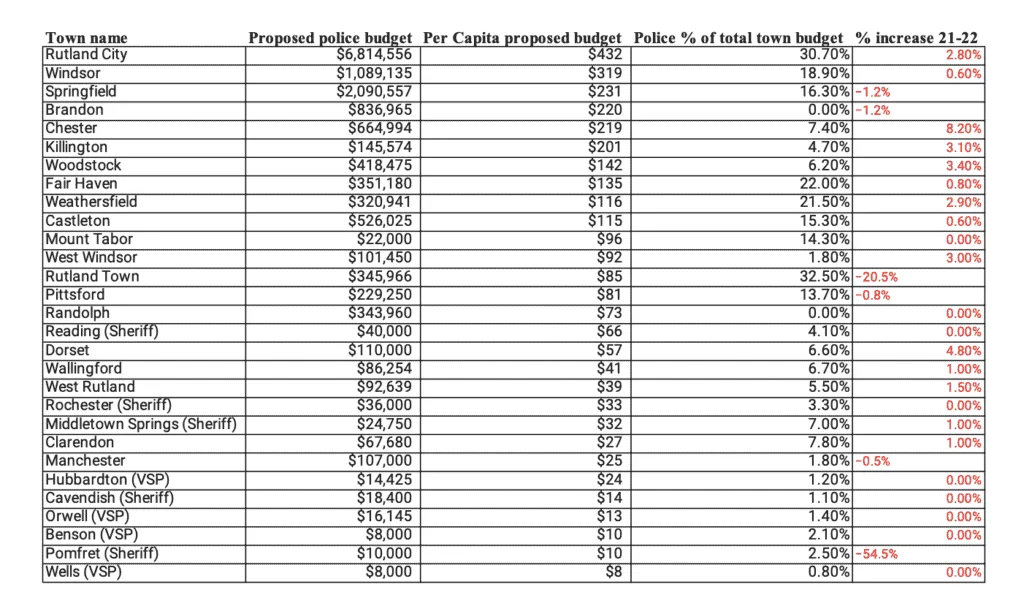
By Erin Petenko/VTDigger
A new analysis of police budget proposals up for a vote on Town Meeting Day found that, on average, they’re flat — police budgets headed for voters next month have dropped very slightly — on average, by 0.45%. But an average is just an average, and police budgets vary widely from community to community.
Researchers and student interns at the University of Vermont’s Center for Research on Vermont compiled police budget proposals from 98 of Vermont’s 246 towns and cities. On average, communities plan to spend about 11% of their annual budget on policing — roughly $128 per person.
A previous analysis of town budgets by UVM found a 3.8% increase statewide from the 2019 fiscal year to 2020 and a 6.5% rise from fiscal year 2020 to 2021. The fiscal year ends June 30.
Just over 50 Vermont communities have their own police departments. The rest get coverage from state police, or through contracts with one of the 14 county sheriffs’ departments.
The researchers found that six communities have proposed increases of more than 10% of their police budgets, while seven proposed decreases of more than 10%. Some communities spend more than a quarter of their town budget on policing; others spend virtually nothing.
The flat budget projection comes amid widespread discussions about policing in Vermont, including conversations about police reform, economic concerns and a drop in certain services because of the pandemic.
“Given ongoing calls to defund the police in the last year, we were interested to see how it will play out at the local level,” said Valentina Czochanski, the lead student researcher.
Montpelier is the largest community to propose a police budget increase of more than 10%. According to its budget proposal, the city predicts a rise in personnel costs — both the officers themselves and police dispatch services.
Locally, Chester is proposing the greatest percentage increase in its police budget at 8.2% and Rutland Town is proposing the largest percentage cut, at -20.5%.
Rutland City has the largest police budget in Rutland and Windsor County at $6,814,556 (or $432/resident) followed by Springfield at $2,090,557 (or $231/resident).
Eight towns in Rutland and Windsor County spend more than the state average per resident (though not necessarily as a percentage of their town’s total budget), according to the report. In addition to Rutland City and Springfield, those towns include: Windsor at $319/resident, Brandon at $220/resident, Chester at $219/resident, Killington at $201/resident, Woodstock at $142/resident, and Fair Haven at $135/resident.
Emily Anderson, head research coordinator, said collecting police spending data was difficult because there’s no centralized place to find town budgets, or a standardized way for towns to report categories of spending.
While researchers tried to make note of any contracted services or separate categories of police spending, such as benefits, “these budgets can be complicated to look at,” she said.




